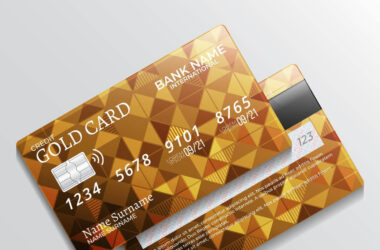Credit, or a loan, refers to the ability to borrow money, or obtain goods and services before payment, based on the trust that payment will be made in the future (Oxford English Dictionary).
As Africans, we sometimes think of credit as a purely western idea, however, it is interesting to note that as early as 1553 in the Benin Kingdom, there is a recorded instance of credit being offered to English traders by the King of Benin “should their goods prove insufficient to pay for a whole cargo of pepper” (Ryder, Benin and the Europeans, 77-8). In the 1700s, in the Western Sahel (a region covering Northern Nigeria, Senegal, Mali, Niger, and Chad), there was the regular practice of advancing goods to customers with the promise of future repayment (Hogendorn, Slavery and Abolition 17(1996)).
During the colonial period, formal lending grew with the creation of special purpose banks to further development in various areas. Unfortunately, these banks only offered loans to well-connected members of society, leaving room for predatory lenders to take advantage of the poor who needed access to credit.
This does not mean there was entirely no hope for those who were not able to access credit from formal banks and did not want to fall into the trap of predatory lenders. The informal lending sector has existed as far back as the early days of the Yoruba kingdom. Cooperative groups known as esusu in southwestern Nigeria, etoto in eastern Nigeria, and adashi in northern Nigeria, were formed to facilitate savings and loans for groups of farmers and traders. In these groups, members contribute money regularly and take turns getting a credit advance of the sum of the group’s savings to use to care for their needs. If this sounds familiar, that’s because these informal credit networks still exist today, and you may even know someone who is part of one of these networks.
As you can see, credit is not foreign to us as Nigerians, yet many have a negative view of it, partly due to some who have taken advantage of the vulnerable and poor to practice predatory lending. As these predatory lending practices are still in use, it is important for customers searching for credit to do their due diligence and verify the credibility of their lenders.
As Africa’s largest retail Bank, Access Bank is committed to serving all the needs of its customers, including providing instant access to credit through its digital lending portals – *901*11#, the QuickBucks app or on the QuickBucks website. In compliance with CBN (Central Bank of Nigeria) regulations, the bank also ensures that customers do not borrow more than they can afford to repay by keeping track of how much debt they have outstanding and capping and how much they can borrow at any time.
These measures make it possible for customers to safely access credit and financing for necessary goods and services with peace of mind, knowing that they will not experience humiliating collection practices, as they can comfortably repay.
It is not just lenders who need to be responsible. Customers also need to take steps to avoid drowning in debt. Here are some steps you can take to ensure that you are responsible with credit:
- Always pay back on time: Responsible lenders like Access Bank will give you a loan offer letter detailing the amount you need to pay on each repayment date. Missing repayments will usually lead to additional fees and make it difficult for you to access future loans. With Access Bank digital loans your repayment amount is automatically removed from your account on the repayment date. All you need to do is make sure your account is funded.
- Never borrow more than you need: Just because you are eligible for a N5 million loan does not mean you must take the full N5 million. Only borrow amounts you need and can repay within the loan period.
- Keep records of all your loans: Do you have a mortgage loan or a vehicle loan, and need a salary advance or payday loan? Be sure you have records of all your existing loans detailing how much you need to pay every month. This way you know exactly how much to set aside for repayments, and you will never have to pay a late fee.
- Avoid taking out too many loans: This goes back to not borrowing more than you need. The more loans you have, the easier it is to miss a payment.
Follow these steps and you will be able to use credit with peace of mind. Do you have an urgent need that credit could solve? Dial *901*11# or get the QuickBucks app to see how much instant credit you have available to you from Access Bank.





